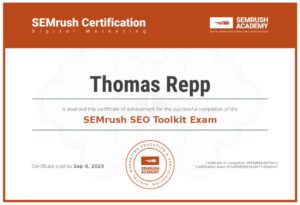-
 There is no buy-in from the boss.
There is no buy-in from the boss.
Clearly, inbound marketing is becoming mainstream for industrial marketers.
In the last couple of years, I have started two inbound marketing projects from major industrial companies that initially bought into the idea of content marketing or inbound marketing. I could sense a natural reluctance from these two baby-boomers. One owner even told me he did not expect this marketing effort to work. I then ask him why he was moving forward, his response was, “I hear this is thing to do”.
I learned my lesson. I should have stopped him from writing the check right there.
In both cases, the projects were going well. That is, the web sites received a fresh look, the web traffic was up by over 300%, in both cases the web forms were gathering leads and product quotes. I was thrilled at the progress.
Then the owners lost interest and went on to the next shining object. After only 6 months. Sound familiar? Need I say more?
Contrast those cases with a committed, long-term vision, of extending their industrial brand theme using inbound marketing for top-of-mind awareness and lead generation.
Night and day. Failure and success.
I prefer success.
- Website is product-focused instead of human-focused
I recently evaluated a leading industrial manufacturer’s website with a well-known branding expert and good friend, Greg Miller from www.maxwellandmiller.com Together, we evaluated our common client, as well as competitors’.
Greg’s commit was a wake-up call for all industrial marketers.
“They all say…here are our products. Do you want to buy some? Instead, the websites should say, we are the experts in your industry, how can we solve your problem today.”
- Favor industrial directories over targeted blog content and e-books
Clearly, there is place for paid ads in industrial directories such as GlobalSpec (now Engineering360) and ThomasNet if done properly and measured. However, sole reliance on these directories in the age of personalized content and inbound marketing is dangerous. Even Shawn Fitzgerald, VP of ThomasNet’s Digital Marketing Group says, “Inbound marketers will have more opportunities than ever to deliver the exact content that personas want, when they want it. By staying helpful, these new tools yield results and foster more engagement.
Even GlobalSpec is now offering content marketing services.
It is difficult to deliver engaging, helpful content to specific personas via an industrial directory. It can be done, but much less creative control and personalization versus inbound marketing strategies.
- Continued reliance on trade shows for B2B lead generation
In the past, the primary reason for a trade show was lead generation. Plus…an occasional night out on the town or golf outing. Let’s be honest.
Now, your focus should be on continued nurturing of the customers that were already greeted with great content on your website or blog. Before the trade show.
I wrote a blog post back in December 2013 about the Indium Corporation that has improved lead generation and cut trade show costs by 75% by establishing an “attentive culture” using their blogs and extending that culture to the trade show floor. Now engineers seek out Indium personnel by name at the trade shows because of prior relationships built on their website.
Can you imagine?
- The industrial gut is no longer valid measurement
Sure…often amazing successes erupt from industrial owner’s gut instincts. However, marketing data tells us most gut marketing ideas fail. Again, let’s be honest.
One of the major tenants of a content marketing strategy is measurement. By using marketing automation tools you can see exactly what works and what does not work. Measure, adjust, measure, adjust. The Tao of success for inbound marketing.
Virtually every move your prospect makes online is trackable using marketing tools. This gives you valuable intelligence on your prospect’s journey through the procurement process. Your industrial marketing strategy should be constant work-in-progress based on this valuable data. No gut calls here.
I know…it is a little creepy. Nevertheless, in the age of search, mobile and social, your competitors will be doing it. You had better get good at it also.
- Your receptionist or intern is doing social media
Most industrial business owners are digital immigrants. They know a little about digital but still don’t speak the language. Therefore, they hire a digital native to do their Facebook page or Linkedin engagement. The intern or receptionist may be a digital native, but their engagement will not provide value unless they know your product and customers as well as your seasoned engineers or sales professionals.
If you are going to promote your company’s great content via social media, (the primary reason to engage social media in the industrial world) make sure you use your most customer-facing personnel, such as my Indium example earlier. Also, don’t use social media to promote your products. Use social media to listen and engage with your customers and prospects.
- Your most customer-facing experts are not blogging
Maybe your most customer-facing personnel is the owner. Maybe it is a sales professional. Maybe it is one of your talented engineers.
Regardless, someone has to start blogging with the simple goal of creating the most helpful resource in your industry. Ideally, like Indium, you can get several authors to contribute to your industrial blog.
The blog will evolve from simple text-based posts, to helpful YouTube videos, to cool infographics that graphically demonstrate a industry solution, to helpful SlideShare presentations…and, on it goes to become the leading resource in your industry.
Can you say, “Sustainable b2b lead generation”?
Now when a prospect types in something as semantic as “who makes the best quench oil coolers in the industry?” your web page pops up number one or two.
- Your sales group is less effective
There is no doubt there is a need for effective sales people in the industrial market and always well be. I think?
But…as we all know, your customer is 60-70% through the purchase decision by the time your sales group interacts. Now, your sales group must take a consultative role as I outlined in December 2013.
If you find your bottom-achievers are not producing as they used to, maybe they have not accepted the new role of consultant as some of the more attentive and ambitious sales professionals have.
Or…maybe it’s time to fire a salesman and hire an inbound marketer.
OK, Sherlock, how many clues did you find?
Author:Tom Repp
A passionate marketer attempting to change the way industrial marketers leverage the web as a growth-oriented, lead generation machine. View all posts by Tom Repp




